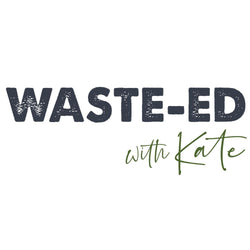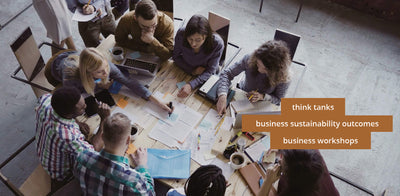
An easy way to get started on your waste-free journey is to simply buy eco-friendly or zero-waste alternatives to everyday items once they’ve run out or need replacing. There are loads of products out there and to make it all a bit easier, we’ve put together a comprehensive guide of 15 of the best waste-free kitchen alternatives to get you started.
Investing in reusable products may seem like a big spend outright, but they will save you money in the long run. The smoothest way to transition to zero-waste alternatives is just to use up what you already have and replace it as it runs out or gets tatty. If you want to buy everything at once, that’s great, but you might as well use your plastic dish brush until the bristles are totally shot rather than chuck out a perfectly usable product.
Fully transitioning to all of these waste-free alternatives takes time, do what you can every day and what makes the most sense for you, and you’ll be there in no time! This guide isn’t meant to be a daunting shopping list, it’s designed to break down the waste-free lifestyle into small, easy, and manageable changes you make today.
Really easy:
Simple and convenient alternatives that don’t take a lot of effort to switch to.
1. Paper towels < Reusable cloths


2. Plastic cooking utensils < Wooden or stainless-steel cooking utensils

As your plastic ladles, spatulas, and measuring cups kark it, replace them with more durable utensils made out of eco-friendly materials such as wood or stainless steel. You can find them almost anywhere – they may cost a bit more than the plastic alternative, but they should be much more durable.
3. Plastic dish brush < Bamboo dish brush

Most bamboo scrubbing brushes (like this nil one) have replaceable heads that can be home composted when they get tatty, and the handle can continue to be used. There are lots of bamboo vegetable brush options out there too, like this nil brush.
4. Plastic food wrap < Reusable beeswax food wraps

Beeswax food wraps can be used again and again and home composted when they get old. Just give them a wipe with a clean cloth and cold (definitely not hot) water to clean – use a mild/natural dishwashing liquid if they’re really dirty. Tip: make sure to warm up new wraps in your hands for a bit before using, this will help them stick to themselves or a bowl much more easily!
NZ brands Honeywrap, nil, and Munch make some great ones – nil also make vegan food wraps made from candelilla wax.
5. Chemical-laden cleaning products < Natural/Eco-Friendly cleaning products

Do your bit to help the massive issue of waste-water by switching to cleaning products that are better for the environment. NZ brands such as Earthwise, Ecostore, and Figgy & Co. make natural, plant-derived cleaning products that are much safer to wash down the drain. Or you could always DIY it with baking soda and white vinegar!
6. Plastic straws < Reusable Straws

Reusable straws (like these Caliwoods smoothie straws) are a no brainer! Just like cutlery, they can be used almost endlessly, washed in the dishwasher, and will save heaps of plastic waste from landfills. Tip: if you’re drinking thicker drinks like smoothies, give them a quick clean with a straw cleaner before popping them in the dishwasher. You can also get drinking straws that have a bend in them which are particularly great for people with special needs.
7. Snaplock bags < Reusable bags

Even if you reuse snaplock bags a heap of times before chucking them out, it’s still plastic in the landfill. Switch to a truly reusable alternative like these Munch cotton lunch wraps and bags or these Kai Carrier pouches.
8. Tea bags < Loose leaf tea and strainer

Tea bags are often lined with plastic, making them non-compostable. Go old-fashioned with loose leaf tea and tea strainers, then pop the tea leaves in the compost bin. There are these great reusable tea bags from The Swag, or you can find stainless steel strainers at most kitchenware shops.
9. Baking paper < Reusable silicone baking mat

If you’ve never heard of a SilPat or something similar, it’s a silicone baking mat that food doesn’t stick to, completely cutting out the need for baking paper. Loads of different brands make them now, you can get them at kitchenware shops or departmet stores like Briscoes, Farmers, The Warehouse etc. You can get muffin trays and cake tins too.
10. Paper napkins < Reusable cloth napkins

Paper napkins can’t be recycled because after you use them, they’ve been ‘contaminated’. So if your household uses a lot of paper napkins or you’re hosting a dinner/birthday party, think about using some good old-fashioned cloth napkins. They’ll save lots of rubbish and they’re way nicer to use, too. Also, next time you’re getting takeaways, think twice about if you really need them or not.
11. Plastic food storage < Glass or stainless steel food storage

As your plastic food containers eventually wear out, buy glass or stainless-steel containers to replace them, like these ClickClack containers – they’re much more durable and the process of producing glass is much better for the environment than plastic. Or just use glass jars you’d otherwise recycle to start storing things and you won’t have to buy new containers at all! You can use these for bulk-bin buying or takeaways. Tip: pour boiling water in the glass jar and leave to sit for a few minutes, this will make peeling off the label a lot easier.
A little bit harder:
Things that may take a bit of time to get used to or remember to do, but are totally worth it!
12. Plastic shopping bags < Reusable shopping bags

Most of us should be pretty good at this now with supermarkets banning plastic bags, but it can be very easy to forget them. My top tip is to always leave your bags in the car – get into the habit of putting them in there straight after you’ve finished putting the groceries away. It may be a bit annoying at the time, but it’s better than coming home with plastic bags or even more reusable bags every time you shop! Another overlooked aspect of this are the bags you accumulate while clothes or homeware shopping, for this, having a tote or fold-up bag like this Pouch Products Carry Pouch in your handbag or car is a great way to reduce this waste.
13. Plastic produce bags < Reusable produce bags

14. Food scraps in the bin < Composting/Wormfarming

Composting is a super effective way to reduce a huge amount of rubbish from unnecessarily going to landfill. Food scraps can’t properly break down in landfills as there isn’t enough air, instead, they just sit there, releasing a whole lot of methane and producing leachate. Composting is easier than you may think, doesn’t cost much to set up, and is also great for your garden. You can learn more about it here. The Bokashi method is also a great option for meat scraps or those without a backyard. Tip: Try to keep a 70% dry material to 30% wet material ratio to help food break down more efficiently.
15. Plastic bin liner < Nothing!

There’s been a lot of talk about how the plastic bag ban is leaving people with nothing to line their bins with (unfortunately, plastic bin liner producers are probably making a killing off this ban and loads of unnecessary plastic is still heading to landfills). The thing is, if all of your food scraps are going in the compost bin, and all of your clean recycling is being put in the recycling bin, you really shouldn’t have any need for a bin liner. It’s best if you wash out non-recyclable containers/wrappers etc. before putting them in the bin, if you do this, there shouldn’t be any smell! If you’re still worried, you could always put some newspaper in the bottom of the bin, but once you get good at this, you probably won’t need to.
If you’re just getting started on your waste-free journey, the kitchen is a great place to start and these easy alternatives don’t take a lot of effort, they just involve making smarter shopping choices next time you need to replace any of these items. It may take a while for you to switch over to all of these, but if you just make a start with one of these things, you’ll be on your way. If you’re already doing some or most of them, keep it up!
#DoOneThing
Powered by AZEXO Shopify page builder


